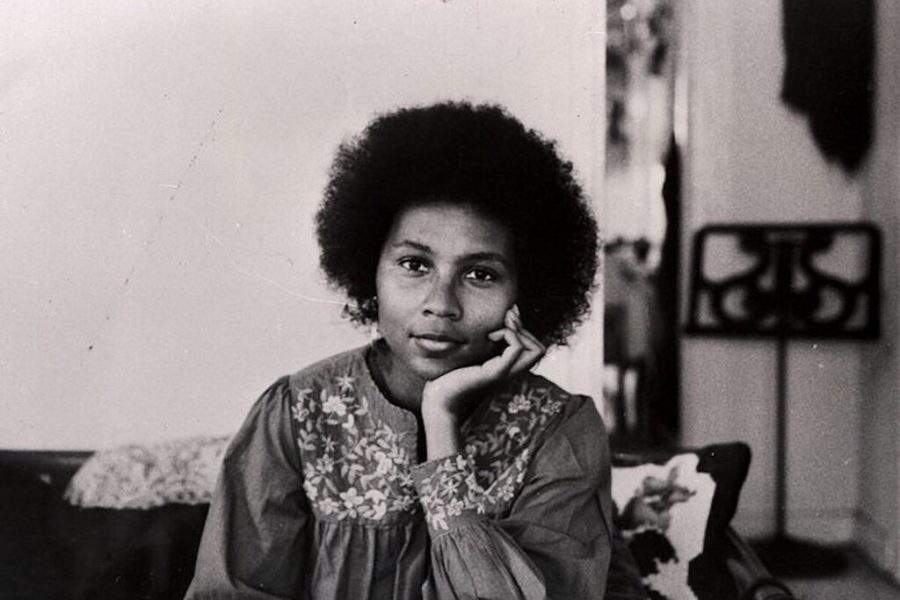BHM: bell hooks’ legacy of love
bell hooks in her youth. Photo courtesy of bell hooks Institute.
February 19, 2022
It was near Hopkinsville, Kentucky in 1952 that Gloria Jean Watkins was born. She is better known by her pen name, bell hooks, and is considered to be one of the forefront black feminist thinkers in third-wave feminism. Sadly, she passed away in December 2021; fortunately, bell hooks’ life legacy lives on in her intersectional feminist perspective on a multitude of social issues. Mainly, in her viewpoint of love.
What is love? How should we love? hooks approaches this issue with candor and compassion. In an NPR interview following the release of her 1999 book “All About Love: New Visions,” hooks states, “The vision of love that I present runs counter to this idea of a sentimental love but I’m talking about a love that is transformative that challenges us in both our private and our civic lives.”
hooks’ talks about how our current vision of love, warped by what she calls “white supremacist capitalist patriarchy,” is insufficient in displaying the actual power of the emotion. Beyond just being sentimental and intimate, love can be political and be key to real change.
Not long after writing “All About Love”, she published “The Will to Change: Men, Masculinity, and Love.” hooks argues that patriarchy doesn’t just harm women, but also harms men by emotionally closing them off. Feminist thinking that posits men’s health as part of the movement has become more common in recent years; but, that idea was far less integrated in the feminist thinking of 2004 when “The Will to Change” was published (something hooks notes as a reason for her writing the book in the preface).
bell hooks’ “The Will to Change” specifically resonated with me to the deep extent it did because I recognized my own relationships with men in the book. One of the chapters is dedicated to examining the relationship between young boys and their fathers. hooks observes that fathers often withhold showing their love towards their sons and how that creates distrust and devalues the mothers’ love (which is easier to obtain).
As someone who has a difficult relationship with their father themselves, the chapter really hit me and reminded me of my own painful memories. I remember being around eight or nine years old and asking my mom why I had never played baseball or catch with my dad. In my mind, that was the pinnacle of a normative relationship with your father, which I felt that I definitely did not have. My mom then noted that I’d never even played baseball and never had expressed interest in the idea of playing catch, so I dropped the conversation entirely. I wanted some type of bond with my dad, but I had no idea how to go about it, so I decided to try to have what the kids on TV had with their dads. I was searching for something, anything. Eventually I gave up on trying to find a way to have a relationship with my father.
Another part of “The Will to Change” is the examination of how masculinity often shutters the emotional side of men. hooks examines how patriarchy emotionally scars men and tells them that the only acceptable emotion is anger. To be in touch with your emotions is to be weak, to be queer, to be other. I stopped caring about what others thought after I came out as gay in 7th grade, having already been “othered” by all the other boys. I became free, I experimented with different interests outside of what is acceptable in a heteronormative society for men to like. I became more joyous and realized my true self. Although it stung to not be in the “masculine boys’ club” that I was previously a part of (or at least felt a part of), that sting was taken away by the freedom of flying through middle school trying to find myself without trying to repress all my emotions, to live authentically.
bell hooks’ feminism is one that strides to make everyone a feminist, that believes love as a political act can be one of the most radical and powerful. In truth, emotion isn’t a masculine or feminine trait. It is fundamental to humanity. hook’s insistence that everyone is capable of emotion and her hopefulness in the face of oppression made her one of the greatest feminist thinkers of all time. She is revolutionary in so many ways and has positively impacted the world around her.









